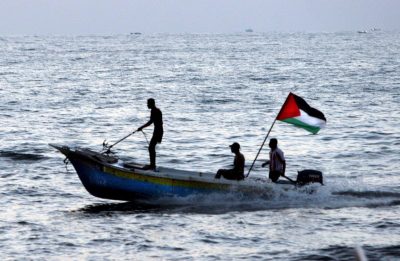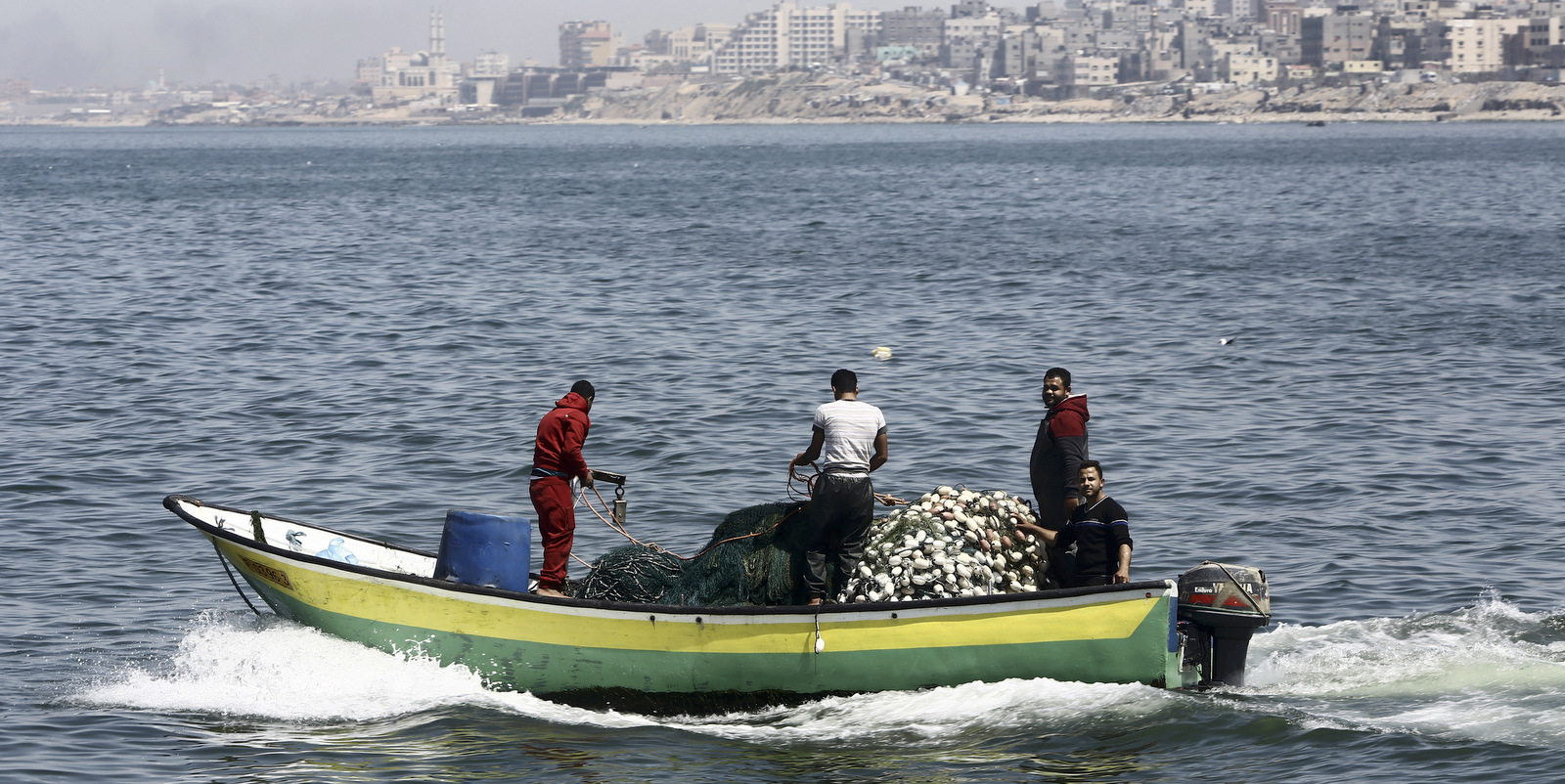Murder in the Mediterranean, Illegal Blockade – The Perils of Fishing in Gaza
In 2016 alone, there were at least 126 incidents in which small wooden fishing vessels were fired on by the Israeli Navy.

On Al Nakba Day of all days, the Israeli Navy killed another Palestinian fisherman, Muhammad Majid Bakr. The second in this year alone. The Israeli Navy claims Bakr’s fishing trawler responded neither to their calls, nor warning shots, after deviating “from the designated fishing zone in the northern Gaza Strip.”
The boundaries of the fishing zone off Gaza are arbitrarily determined by Israel and enforced by its Navy. These boundaries follow neither international law (12 nautical miles (nm); 22.2 km; 13.8 mi), nor the Oslo Accords that Israel signed (20 nm; 37.0 km; 23.0 mi). “In the years before 2006, fishermen could go out 10 nm to 12 nm, but from 2006 until 2012 the zone was limited to 3 nm.” In 2012, Israel agreed to increase the zone to 6 nm, but later cut it back. The cease-fire agreement to the 2014 assault on Gaza restored the 6 nm zone. Since then the zone’s boundaries have changed too. he difference between 6 nm and 9 nm is significant. Within the 6 nm zone, the fishing areas are sandy and not conducive to larger fish. The best fishing is found in rocky areas which extend into the 9 nm area.
Since Israel follows neither the international boundaries of territorial waters, nor the boundaries that it agreed to at Oslo, Israel’s Navy is imposing an illegal blockade. This is an act of war. Further, even if the blockade was legal, to fire upon and kill unarmed civilians that pose no threat is a war crime.
This was not the only incident of the day. “In the hours before Bakr was slain, Israeli forces detained six Palestinian fishermen and confiscated two boats.” This is another violation of international law – piracy. As the Electronic Intifada reports,
“the Palestinian Center for Human Rights recorded 126 incidents in which fishing vessels were fired on by Israel [in 2016], and 130 arrests of Palestinians aboard fishing vessels during that period.”
Clearly Israel’s naval blockade, its attacks upon civilians and its piracy are not one-off incidents. They are the implementation of Israeli policy to oppress, injure and kill Gaza’s fishermen.
These unarmed fishermen, who are trying to earn a living to feed their families, and feed the people of Gaza, have no idea when the Israeli Navy will attack. The arbitrary patrols of the Israeli Navy do not even respect their own boundaries at times. Meanwhile the fishermen of Gaza have no recourse against such overwhelming military force and the willingness to use it lethally. Thus the fishermen of Gaza are often deprived of going to the more abundant fishing areas. The resulting lower yielding catches deprive Gaza of much needed food for the 2 million people living in their open air prison created by Israel. Therefore Israel’s implementation of its naval blockade results in yet another war crime – collective punishment against a civilian population.
There is also the specter of Israel’s designs on natural gas fields off the coast of Gaza. Under the Oslo Accords, Gaza was supposed to have control of the territorial waters where natural gas was later found. In 2000, the Palestinians signed “a modest contract to develop . . . confirmed fields” with British Gas (BG). It was at this point that “Prime Minister Ehud Barak [implemented] Israel’s naval control of Gazan coastal waters and nixed the deal with BG.” Israel unlawfully blocked Gaza’s ability to develop its own natural gas field and the associated economic opportunity that went with it. Since Gaza would have benefited from the supply of natural gas, this also constituted another act of collective punishment. Further, Israel tried to develop natural gas fields in disputed water itself.

Fishermen ride their boat into the waters of the Mediterranean Sea near Gaza City, April 6, 2017. (Source: AP/Adel Hana)
Perhaps most pernicious about these attacks is that they are completely unnecessary. The Gazan boats attacked are typically small, wooden fishing trawlers as shown in the picture above. The Israelis are employing modern, heavily armed and armored naval vessels. There is no physical threat from the trawlers and therefore no need for the Israeli Navy to apply any kind of force, let alone lethal force.
How is it then that the Western Media will report the firing of a defiant, homemade rocket with an insignificant payload, if any, that harms no one, but won’t report persistent Israeli attacks and the murder of unarmed fishermen on the seas off Gaza? The former is the act of a desperate people under a complete siege by Israel. That siege itself is an act of war. The assault on fishermen constitute regular, deliberate and unprovoked attack on civilians from Gaza.
Israel’s routine provocations in Gaza extend far beyond the fishing zone and attacking fishermen. Israeli provocations include:
* shelling by tanks, artillery and naval batteries,
* military border incursions with tanks and heavy equipment,
* bulldozing of fields inside Gaza’s border,
* spraying pesticides on Palestinian crops,
* shooting unarmed farmers from border walls because they may enter a 300 m perimeter within Gaza,
* restricting Gaza’s main export of produce,
* restricting the import of necessary building supplies and other goods,
* leaving 65,000 people still displaced from the 2014 massacre, and
* using live ammunition against unarmed protestors.
All of this is of course in addition to the complete siege entering its second decade and periodic massacres such as those in 2008-9, 2012 and 2014.
So while the West remains silent, are we really surprised at the rockets of defiance? President Obama famously said the Israeli talking point in 2014, “no country would tolerate rockets being launched into their cities.” He made similar statements prior to that too. This begs the question though, which countries would tolerate these all too frequent Israeli provocations that President Obama failed to acknowledge.
Last worth noting is that since the attacks upon Mr. Bakr and his fellow fishermen targeted civilians, isn’t that a textbook example of terrorism?
Ian Berman is an entrepreneur and former corporate banker at leading global banks in New York City. He now focuses on renewable energy, financial advisory services and writing about representative government, equitable public policies and ending American militarism and Israel’s continuing colonization of Palestine. He is the Co-Founder of Palestine 365, the Ongoing Oppression and its predecessor, Palestine 365, on Facebook.
Featured image: EPA/ALI ALI/VIN

